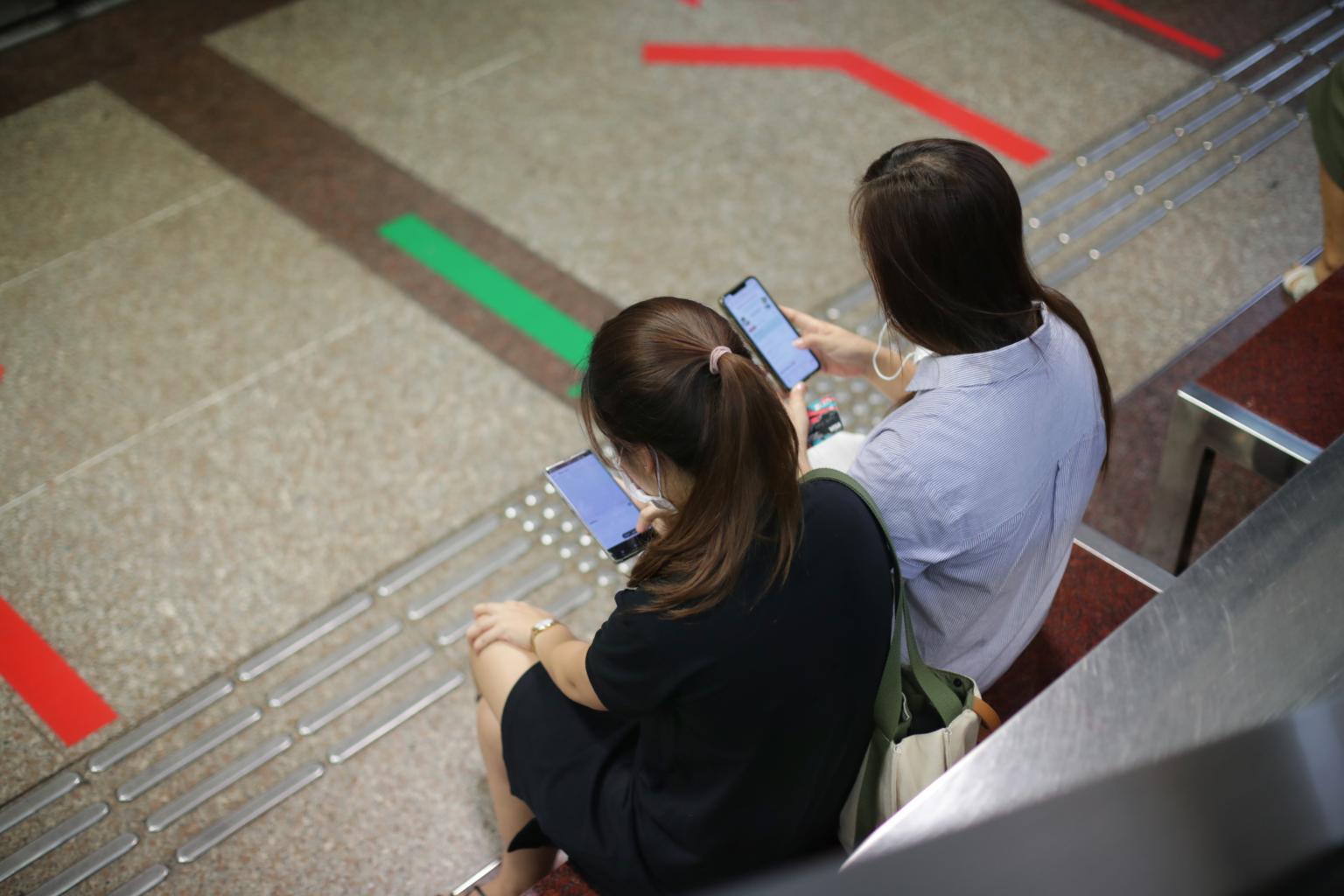Poll finds nearly half of Singaporeans have poor information hygiene
Sign up now: Get ST's newsletters delivered to your inbox

Six in 10 respondents in the survey said they would share news items they found interesting.
ST PHOTO: GIN TAY
SINGAPORE - Fewer than one in five Singaporeans practises good information hygiene, even as a majority have no qualms spreading news they find interesting, said a report.
These were the findings of the 2021 Edelman Trust Barometer report on Singapore that described trust levels in the Republic as "threatened by a troubling lack of information hygiene".
The survey measured information hygiene across four parameters: whether respondents regularly engage with the news; engage with different points of view; verify information; and avoid spreading unvetted information. A person is considered to have good information hygiene if he or she does well in three or more areas.
Only 18 per cent of Singaporeans polled made the cut, with 46 per cent rated "poor" for fulfilling one or none of the criteria. In contrast, the global average for 27 countries stands at 26 per cent and 39 per cent as having good and poor information hygiene, respectively.
Meanwhile, six in 10 respondents here said they would share news items they found interesting, against 57 per cent globally.
At an online webinar on the findings, Edelman Singapore's managing director Delicia Tan-Seet said the low level of information hygiene here could be due to how "social cachet is often built on the speed at which you receive or you share information", and also Singaporeans' trust in anti-fake news laws. Yet respondents here were aware of the need to improve their media literacy, which was second only to putting their family needs first, when asked how their priorities had shifted since the start of last year.
While government officials were perceived by 55 per cent of respondents as credible sources of information - a five-point increase from the previous report - more respondents saw people like themselves (51 per cent) as credible, compared with chief executives (44 per cent) and journalists (39 per cent).
As groups of people, scientists were most trusted (73 per cent), followed by government leaders (62 per cent). People in the community registered the largest loss in trust - a nine-point drop - from the year before.
Global news organisations were seen by 57 per cent of those polled as more concerned with supporting an ideology or political position than informing the public, while 49 per cent said the media was not doing well at being objective and non-partisan.
Fifty-seven per cent of respondents felt that journalists were trying to mislead people on purpose with falsehoods or gross exaggerations, compared with 53 per cent for business leaders and half for government leaders.
South China Morning Post deputy executive editor Zuraidah Ibrahim said the findings showed a "dysfunction" in today's information ecosystem.
"We have to grapple with this reality that people are almost wilfully turning a blind eye to reliable information," she noted as part of the online discussion.
Fellow panellist and senior research fellow at the Institute of Policy Studies Carol Soon said most people were lost and overwhelmed in today's information avalanche. "A lot of this information is noise... We really need to think very hard about helping people to navigate the space," she said.
"We should not just look at the digital divide in terms of people's access to technology, but also in terms of their ability to fully use and harness technology to advance themselves, whether it's socially or economically."


